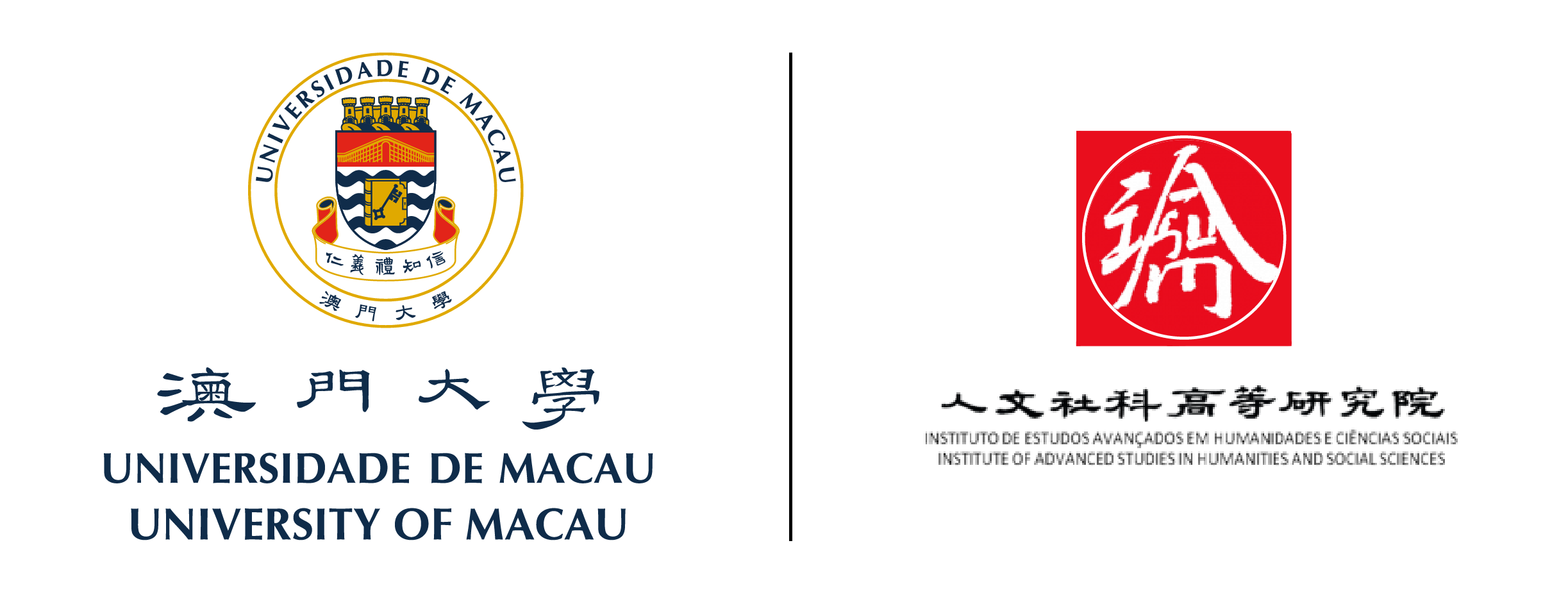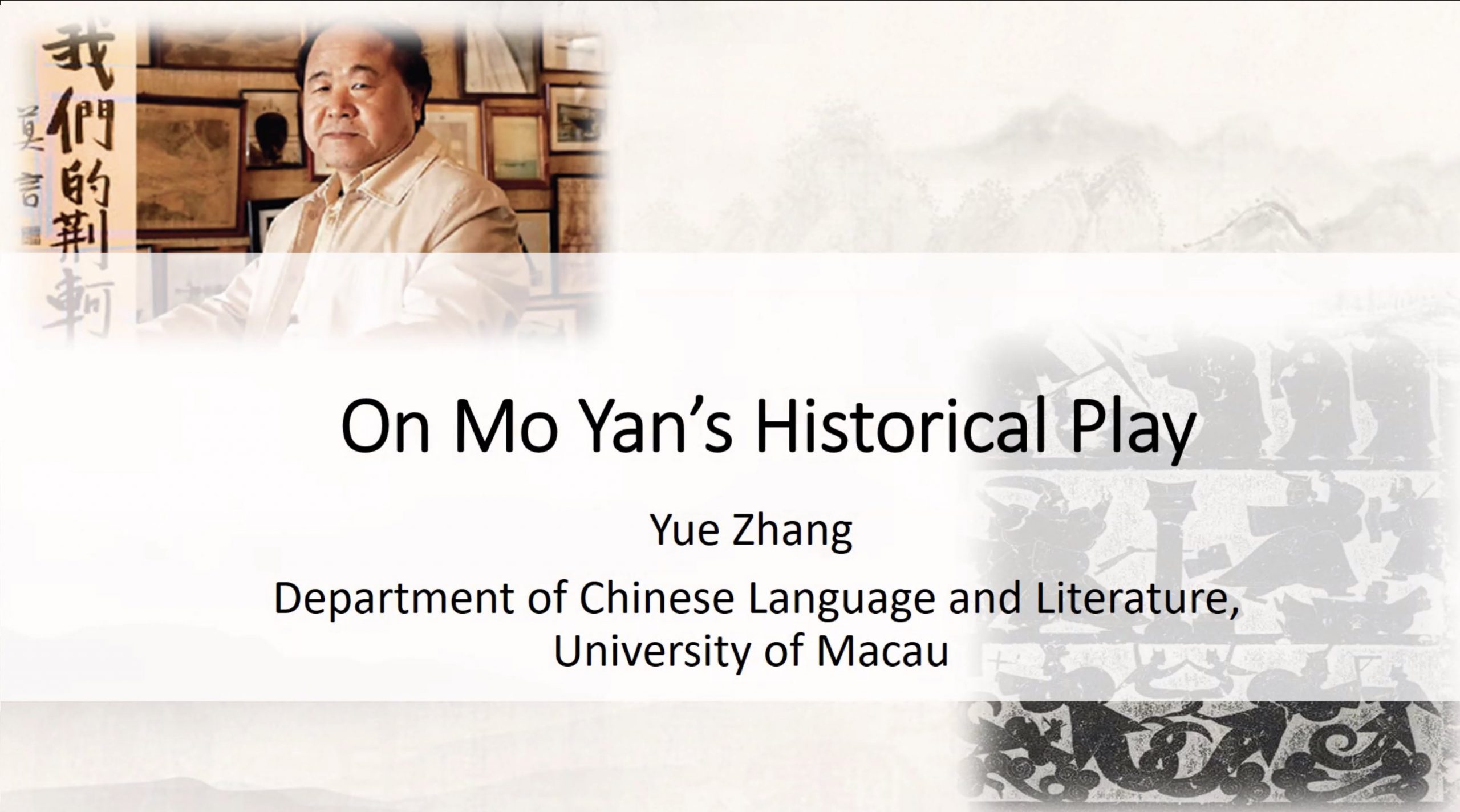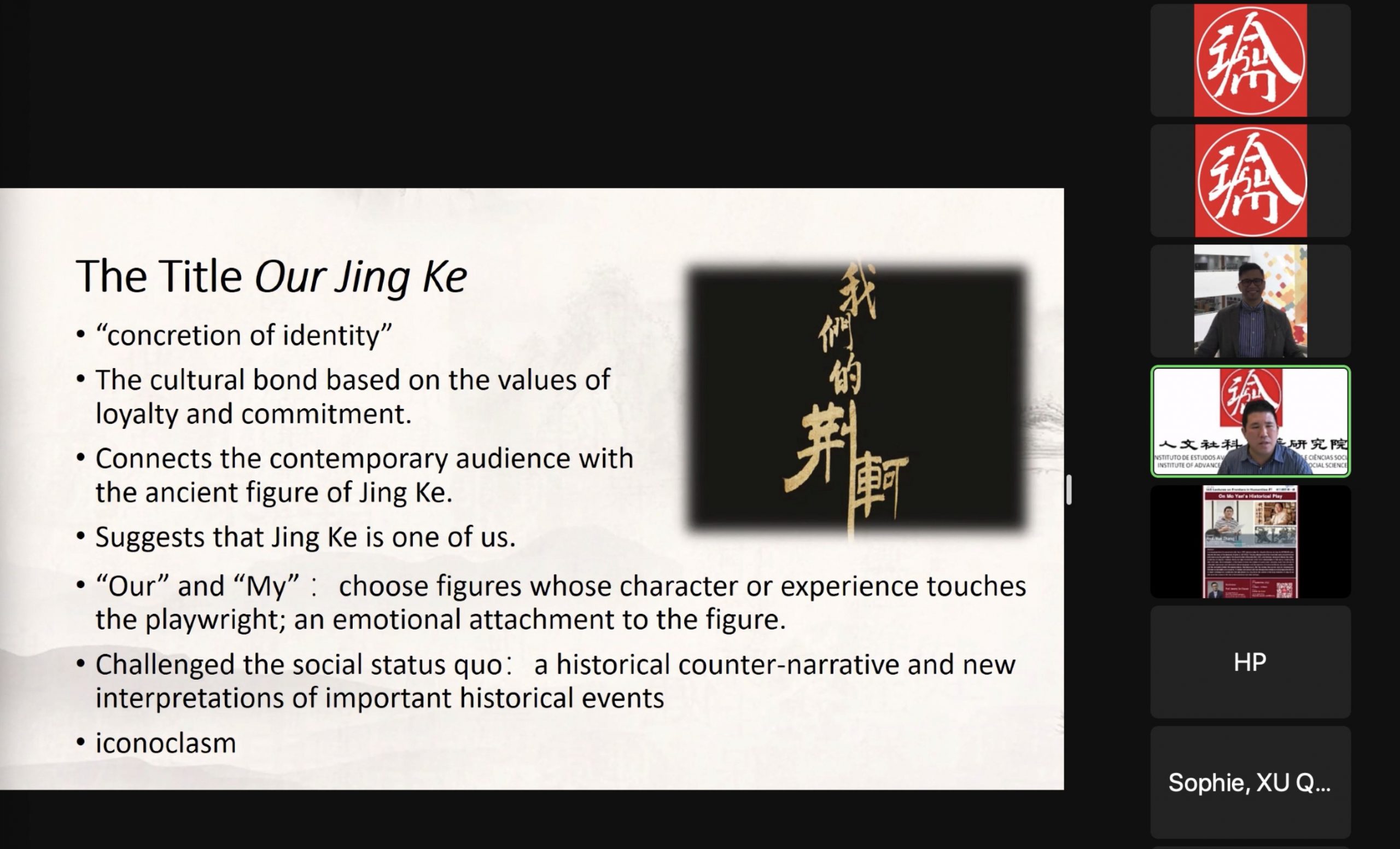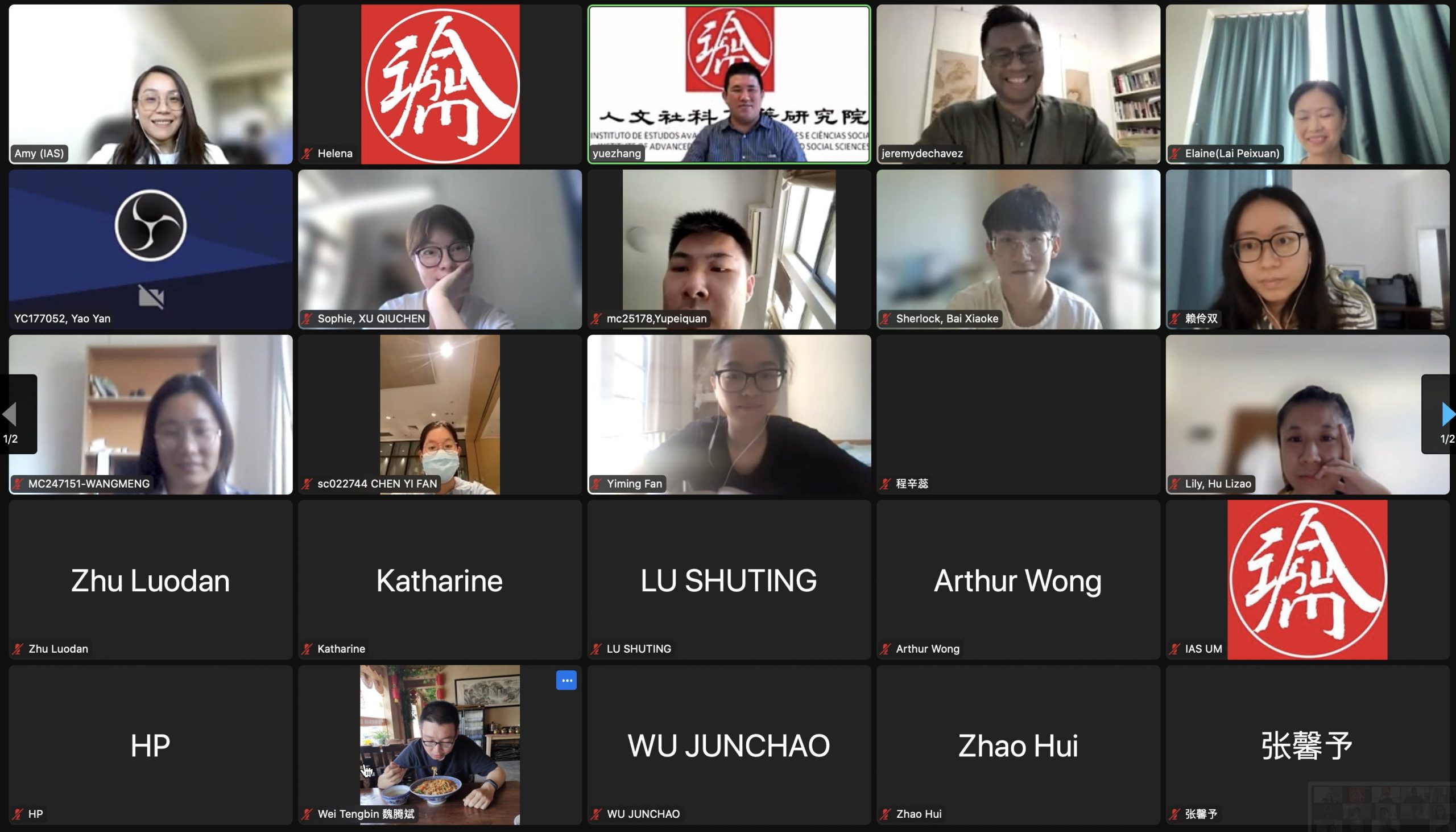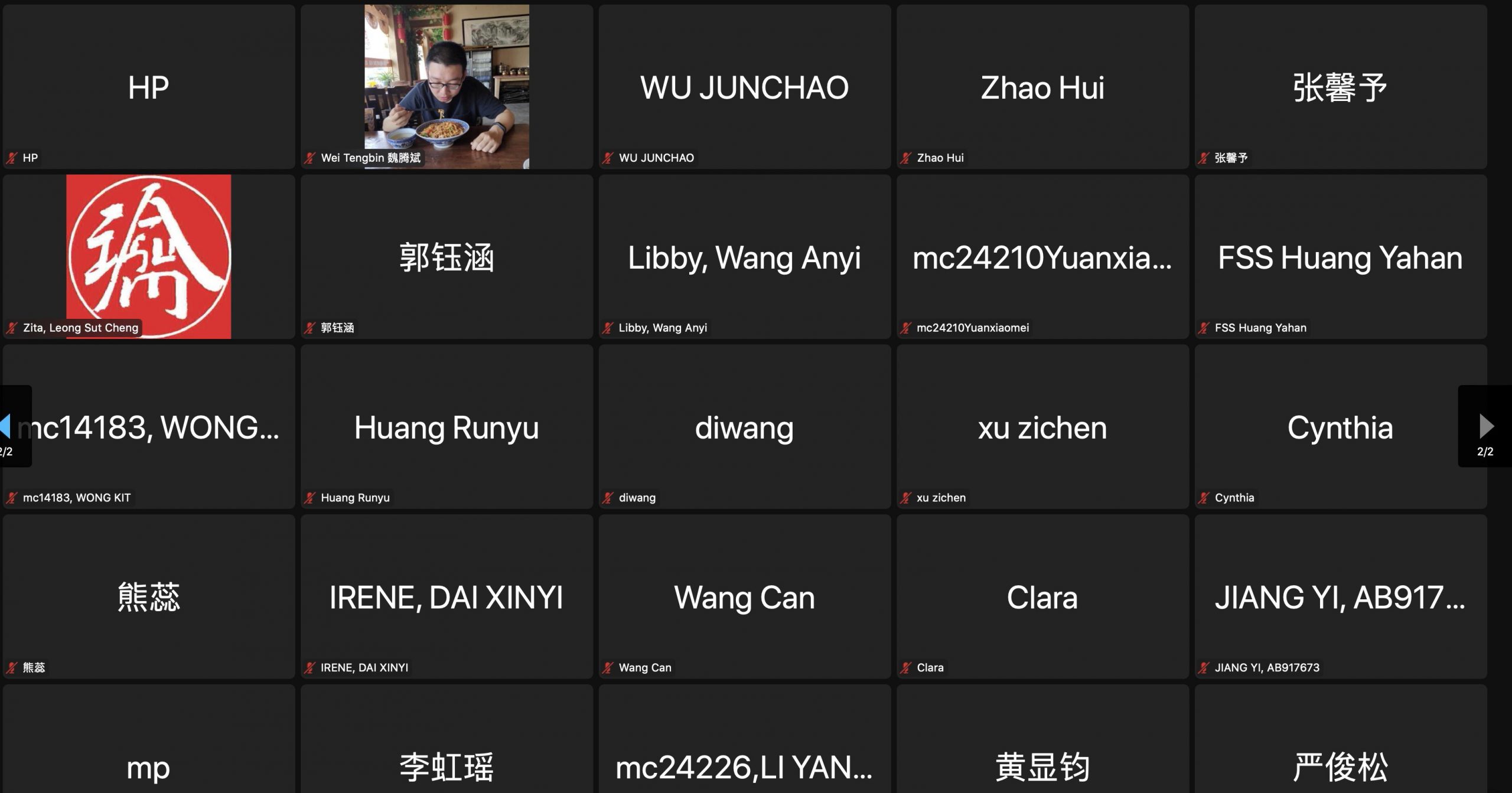The first Lecture on Frontiers in Humanities organized by the Institute of Advanced Studies in Humanities and Social Sciences (IAS) was successfully held online on 9 September 2022 (Friday). Professor Zhang Yue, Research Fellow of IAS, Assistant Dean for Academic Programme, Associate Professor of the Department of Chinese Language and Literature, FAH, was invited to give a lecture on the topic “Mo Yan’s Historical Play”, and share his research achievements in Our Jing Ke and Mo Yan’s work. Professor Jeremy De Chavez, Assistant Professor of the Department of English, FAH, was invited to be the moderator.
During the lecture, Professor Zhang discussed the theme, content, roles, and background of Our Jing Ke. In this play, Jing Ke assassinated Qin not for the sake of righteousness, but for fame and fortune. Professor Zhang introduced that the title of the play “our” links the contemporary audience with the ancient figure of Jing Ke. He also presented a new role Mo Yan added – Lady Yan in this work, which greatly modified Jing Ke’s motivation to assassinate the king of Qin. It expresses a theme of pursuing fame and wealth, which also reflects an important issue in contemporary China: the power of fame and popularity. The drama breaks away from accounts and the traditional reception of Jing Ke lore. It reveals the complexity of how Mo Yan uses and disseminates the cultural past, which in turn facilitates our prospective memory of the significance of the Jing Ke story. This lecture adopts from Professor Zhang’s long article “Reconfiguring History through Literature: Cultural Memory and Mo Yan’s Historical Play Our Jing Ke”in Modern Chinese Literature and Culture (A&HCI and SSCI), which was published by Edinburgh University Press in summer 2022. The main academic contribution of this article and the lecture is to interpret Our Jing Ke in the context of cultural memory and Mo Yan’s other literary works, which enriches and expands the current study of Mo Yan.
This lecture belongs to the cluster of “Chinese Culture in Diverse Cultural Environment”, aiming to explore how Macao can evolve into a platform for cultural exchange that emphasizes Chinese culture while also embracing multiculturalism. To actively cooperate with the epidemic prevention policy, this lecture was arranged online via Zoom. Around 120 participants signed up for the event, including professionals, students, alumni, and external audience, effectively promoting academic dialogue and boosting the intellectual atmosphere on UM campus.

